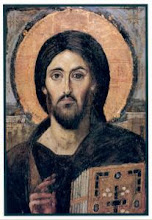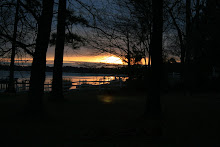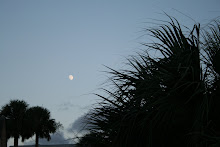Thursday, December 19, 2013
An Icon into God's Nature and a Glitch in our Own
Luke emphasizes the poor, the lame, the blind, the sick and
the outcast in his Gospel. How fitting it is then that it is the shepherds who
are the first people to behold the glorious announcement regarding the birth of
Christ.
Shepherds were viewed as dirty outcasts by the Jewish
religious authorities. Because of their job tending the flocks, the shepherds
were unable to maintain the purity laws of the day; laws that the Pharisees
held to be most important. Yet ironically these particular shepherds around
Bethlehem maintained the temple flock. These were the sheep that were
sacrificed on the altar for the atonement of sins. How sardonic, the sheep were
considered clean but the men who cared for them were viewed as lowly outcasts
and filthy misfits. Yet even out of this religious rule something amazing
happened that only God could have planned.
The shepherds, who kept the temple flock, were the first to
witness the birth of the Christ Child, the Lamb of God, who would ultimately be
sacrificed for the atonement of all our sins. Luke used the lowliest outcasts
to witness the birth of the Lamb of God. In many ways they were still doing
their job by protecting the sheep, and the flawless Lamb.
Often it is the lowly and outcast who are icons to God.
Through them we see the nature of our Creator; God as humble, loving, nurturing,
reconciling and caring. Luke reminds us that God loves sick and broken people
(all of us). On the other hand the Jewish religious authorities were icons or
windows of rejection. Are we like them? How often have we rejected God for not
answering our prayers quick enough, or intervening in a problem we desperately
desired God to resolve? How often have we rejected the poor, the homeless and
the marginalized? By rejecting them we are no better than the Jewish religious
authorities. By caring for the least of these in the world we become closer in our
relationship to God.
When it comes to the socially marginalized we prefer to keep
at least an arms length away. They are the untouchables; the dregs of society. We
conveniently forget that God says, “How you treat the least of these is how you
treat me.” Wow! That is a strong window into the nature of God.
I remember doing my Clinical Pastoral Education in
Annapolis, Maryland. Annapolis is not far from Baltimore, which has high crime
and drug use. I served in a rehab facility for alcohol and drug addiction. One
day a young African American man approached me in great distress. Without
thinking I intuitively gave the man a hug and asked what was wrong. He
explained his fears, the worst living with AIDS. Immediately (and I am not
proud of this) I recoiled back, not wanting to touch the man for fear of
contracting the disease myself. Unconsciously I rejected the man, one of God’s
children who was simply seeking solace. In reality I was rejecting God.
I learned much about myself during my time in Annapolis, and
since that day I have gone on to hold and embrace many people suffering from
HIV/AIDS as well as other deadly diseases. It was a painful lesson that I will
never forget. That young man taught me something about the nature of God and
how we often unwittingly reject God. He also taught me something about myself
that I was unaware. I was no better than the Pharisees. I unknowingly upheld a
certain standard of narrow-mindedness that I didn’t realize existed. God
revealed his nature to me. By rejecting the young man, I was actually rejecting
God. Previously I always thought of myself as identifying with the outcast
since I had experienced social marginalization myself at one time. Little did I
know that over time and with some success in life I changed and lost that
connection. God willing I won’t ever lose it again!
Mary and Joseph both were deeply steeped in Judaism. They
were faithful to their religion. Yet they didn’t reject the shepherds. They
allowed these social outcasts in to see the Christ Child. They welcomed them
without fear for their own safety. They allowed the Lamb of God to radiate his
abundant light to all people regardless of their social status. That light was
transforming and healing, bringing hope to the hopeless, love to the unloved,
comfort to the afflicted and peace to those who lacked solace. That light was
an icon into God’s nature.
Subscribe to:
Post Comments (Atom)
Trinity Wall Street Conference Center Chapel

Our prayers rise like incense into heaven
Church of the Good Shepherd, Augusta, Ga.

"...And the sun shall not strike you by day, nor the moon by night."

























No comments:
Post a Comment